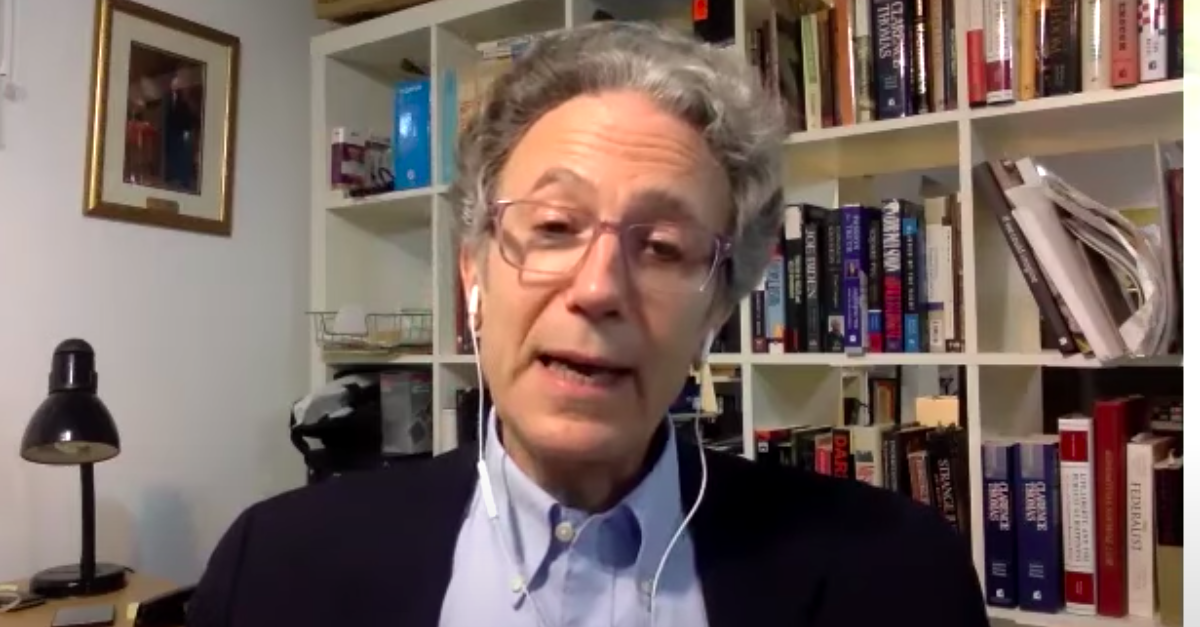
U.S. Agency for Global Media (USAGM) Chief Executive Michael Pack
A Trump-appointed Superior Court judge in Washington, D.C. sided with the city’s attorney general in a lawsuit alleging that the CEO of the U.S. Agency for Global Media (USAGM)–himself a Trump appointee—acted illegally when he attempted to terminate all of the officers and the entire board of directors at a government-funded internet freedom non-profit organization that combats censorship and counters disinformation in authoritarian countries.
USAGM is an independent agency that oversees five international media outlets whose collective mission is to promote the free flow of news, combat censorship, and counter disinformation, particularly in authoritarian countries by providing objective factual reporting. A “firewall” embodied in statutes, regulations, and contract provisions, serves to prevent the organizations from devolving into promoting a partisan agenda. Under Pack’s leadership, however, a multitude of lawsuits have accused the agency of breaching that firewall to facilitate pro-Trump propaganda.
Pack, who was confirmed by Senate Republicans in June despite being under an active criminal investigation by D.C. Attorney General Karl Racine, is a conservative filmmaker and close ally of recently indicted former presidential advisor Steve Bannon. Upon taking over the agency, Pack immediately proceeded to fire nearly all of the organization’s top leaders and replace them with Trump acolytes in what became known as the “Wednesday Night Massacre.” Pack’s nomination had previously been inert for nearly two years until President Trump in April erroneously accused USAGM subsidiary Voice of America (VOA) of disseminating Chinese propaganda.
In a 16-page order, D.C. Superior Court Judge Shana Frost Matini ruled that Pack did not have the legal authority to oust the president and board of the Open Technology Fund (OTF), nor did he have the authority to appoint a replacement board or Acting CEO under the fund’s bylaws.
According to the court, the fund’s bylaws mandated that OTF’s election and removal of directors be under the exclusive control of the board of directors. Directors are elected by majority vote of the board, and can only be removed “for cause” by a two-thirds vote. Additionally, vacancies on the board of directors can only be filled by a majority vote of the remaining board.
“Accordingly, pursuant to the plain language of the OTF’s bylaws, the Court concludes that Plaintiff has demonstrated prima facie entitlement to summary judgment insofar as Plaintiff has demonstrated that the original Board is the only valid board,” Judge Matini wrote.
Matini also harangued Pack’s “purported removal and replacement of OTF’s original Board of Directors” as creating confusion and leaving the fund “incapable” of carrying out its functions.
“The actions of Pack and USAGM have undermined trust in OTF as an organization. The nature of the projects funded by OTF means that partner organizations and individuals, who are often citizens of repressive regimes, could be subjected to harsh repercussions – even having their lives endangered – if their personal information is jeopardized,” she wrote. “However, OTF has been able to work with these partners to promote internet freedom because it has earned their trust that it will ensure the safety of their identities and their work. This trust in OTF will continue to erode, though, the longer that there is uncertainty about the legitimacy of the leadership of the organization. Without the trust of its partners, OTF cannot fulfill its mission of promoting internet freedom efforts.”
OTF’s newly reinstated CEO Laura Cunningham told NPR that the decision should finally allow the fund to once again get on with its mission.
“The court’s decision earlier this week validated what we’ve always know — that CEO Pack’s actions to remove OTF’s bipartisan Board were unlawful — and has provided much needed clarity and stability for OTF,” she said.
“Hopefully this decision also brings us one step closer to unlocking OTF’s funding so that we can resume the truly important work of providing those living under authoritarian regimes with the technologies and support they need to safely access the internet free from repressive censorship and surveillance,” Cunningham said, referring to the nearly $20 million in congressionally-approved funding that’s USAGM’s new leadership has withheld.
Read the full decision below:
Superior Court USAGM Order by Law&Crime on Scribd
[image via YouTube screengrab]